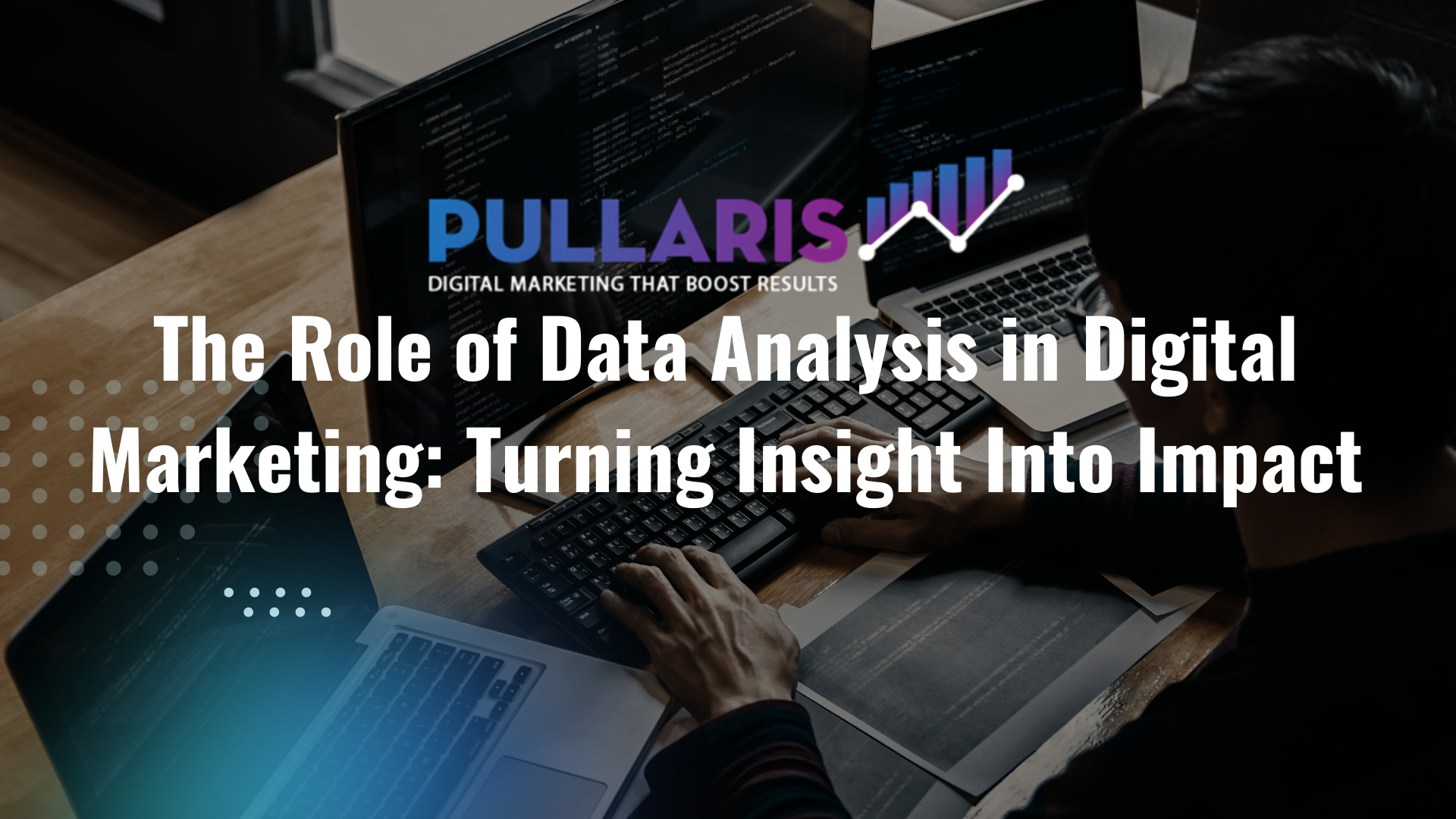The Role of Data Analysis in Digital Marketing: Turning Insight Into Impact
The Role of Data Analysis in Digital Marketing: Turning Insight Into Impact

Data analysis has revolutionized digital marketing, transforming it from a largely intuitive craft into a precision-driven discipline. By harnessing audience insights, monitoring performance in real time, and applying predictive models, marketers can target more effectively, optimize budgets on the fly, personalize at scale, and anticipate future trends. Adopting the right analytics tools and upholding data‑privacy standards not only maximizes ROI but also fosters lasting customer trust and loyalty.
1. Uncovering Deep Audience Insights
Before launching any initiative, the fundamental question is: Who is our audience? Advanced analytics tools dig far deeper than basic demographics, revealing:
-
Which pages or products capture the most attention
-
Where and why visitors abandon their journeys
-
Detailed patterns of add‑to‑cart and purchase behavior
For example, a sustainable‑fashion retailer might discover a strong affinity among 25–34‑year‑olds for its eco‑friendly collections—insights that fuel highly targeted advertising and email campaigns tailored to that segment.
2. Optimizing Campaigns in Real Time
Static, end‑of‑month reports have given way to live dashboards and agile decision‑making. Today’s marketers can:
-
Pause or shift underperforming ads across programmatic networks
-
A/B test email subject lines and sending times to boost open rates
-
Use session recordings and heatmaps to identify UX friction points and iterate immediately
This “test‑and‑learn” mindset ensures every marketing dollar is continually optimized for maximum impact.
3. Delivering Personalization at Scale
Consumers now expect personalized experiences at every touchpoint. By integrating behavioral data, purchase history, and AI‑driven recommendations, agencies can:
-
Serve dynamic product suggestions based on browsing patterns
-
Send individualized email promotions to returning customers
-
Retarget abandoned carts with tailored ad creative
Such personalization not only increases engagement and conversions but also strengthens brand loyalty over time.
4. Predicting Future Trends with Machine Learning
Analytics isn’t just a rear‑view mirror—it’s a crystal ball. Machine learning and predictive models empower marketers to:
-
Forecast demand spikes around key events or seasons
-
Identify subscribers at risk of churn and re‑engage them proactively
-
Automate bid adjustments in real time for programmatic campaigns
By anticipating customer needs and market shifts, brands can stay one step ahead of the competition.
5. Measuring What Matters: Key Metrics & Attribution
True marketing success is defined by bottom‑line results. Essential performance indicators include:
-
Cost Per Click (CPC) and Cost Per Acquisition (CPA)
-
Customer Lifetime Value (CLV) and Return On Ad Spend (ROAS)
-
Funnel‑stage conversion rates
Advanced attribution models—from last‑click to data‑driven multi‑touch—reveal which channels and interactions drive real revenue.
6. Choosing the Right Analytics Stack
With a crowded landscape of platforms, select tools that align with your goals:
-
Enterprise dashboards: Salesforce Marketing Cloud, Tableau
-
Web‑behavior insights: Google Analytics 4, Hotjar
-
Unified data pipelines: Improvado, HockeyStack
Evaluating integration capabilities, automation features, and scalability is key to building an efficient analytics ecosystem.
7. Ensuring Data Privacy & Compliance
Greater data collection brings greater responsibility. Marketers must adhere to:
-
GDPR and CCPA consent and transparency requirements
-
Strategies for first‑party data collection as third‑party cookies phase out
-
Clear, user‑friendly privacy policies to maintain consumer trust
Balancing personalization with privacy safeguards is essential for sustainable growth.
Conclusion
At its core, digital marketing is about understanding people—and data is how we scale that understanding. From uncovering deep customer insights and optimizing campaigns in real time, to delivering personalized experiences and forecasting future trends, analytics empowers Digital Marketing Agencies to craft smarter strategies and demonstrate measurable ROI. By investing in the right tools, honoring privacy standards, and continually iterating on data‑driven insights, agencies can thrive in an ever‑evolving digital landscape.
